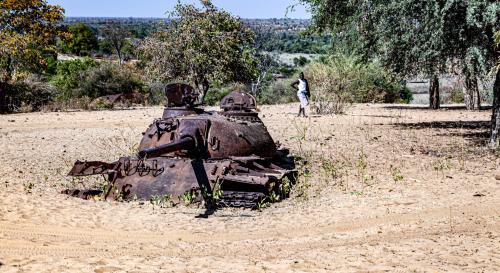
Breadcrumbs navigation
Cosmologies of conquest: The Renaissance foundations of modern international thought
Jens Bartelson discusses the key points from his new Review of International Studies (RIS) article. If you'd like to know more you can read the full article at - Cosmologies of conquest: The Renaissance foundations of modern international thought .
During the past decades, international relations scholars have become increasingly interested in empires as actors in world politics. Although this represents a welcome shift from the narrow focus on states in the study of international relations, the focus on empires has given rise to new conceptual and empirical challenges. One such challenge concerns the mismatch between conceptualizations of empire and their empirical referents. Whereas conceptualizations are usually tailored to capture empires in their mature stages, they risk becoming misleading when applied to the making of empires. Most empires – whether ancient territorial or modern colonial – did not display the characteristics of empire early on but took on these as a consequence of their consolidation. Hence conventional conceptions of empire will not help us make sense of the birth of empires other than in teleological terms, as if the making of empires in the past followed a common trajectory pointing towards a common destination. Thus, there is a lack of knowledge about the conditions under which empires emerge untainted by preconceptions about the result. To amend this situation, Benjamin de Carvalho at the Norwegian Institute of International Affairs has launched a research program on the emergence of empires in the early modern world, engaging scholars within historically oriented international relations to provide fresh and hopefully less biased and anachronistic explanations of his phenomenon.
Cosmologies of Conquest is my modest contribution to this project. Starting from the assumption that existing accounts of Iberian imperial expansion tend to take many things for granted – such as the existence of habitable continents beyond Eurasia and the possibility of getting there by crossing essentially navigable oceans – I explore how these requirements were taken onboard by Iberian elites. Straddling medieval and modern worldviews, these requirements emphasized the impact of heavenly bodies on human affairs. Knowing their position and deciphering their meaning was necessary to navigate the oceans and to make sense of the humans found on foreign shores if only to dominate them. This astrology of conquest was not peculiar to the West but had rough equivalents in the gunpowder empires of the Near East. The outlook informing early modern Iberian expansion was neither distinctively modern nor exclusively Western.
But how is this relevant to the concerns of academic international relations? I think there has been a tendency to forget that the modern international system once emerged out of intense rivalries among early modern empires, and indeed to mitigate the costly consequences of their clashing claims to boundless authority. Most accounts of the origins of the modern international system are based on the assumption that this world of states seamlessly superseded a world of empires without acknowledging that the making of modern states was conditioned by imperial expansion. This means that if we do not make sense of how early modern empires were born, the modern international system will appear as the result of either a Big Bang or a hidden plan.
Want to know more? You can read the full article at DOI: https://doi.org/10.1017/S0260210523000694
BISA members receive access to RIS (and to our other journal European Journal of International Security) as a benefit of membership. To gain access, log in to your BISA account and scroll down to the 'Membership benefits' section. If you're not yet a member join today.
Photo by Henrique Ferreira licenced under Unsplash


